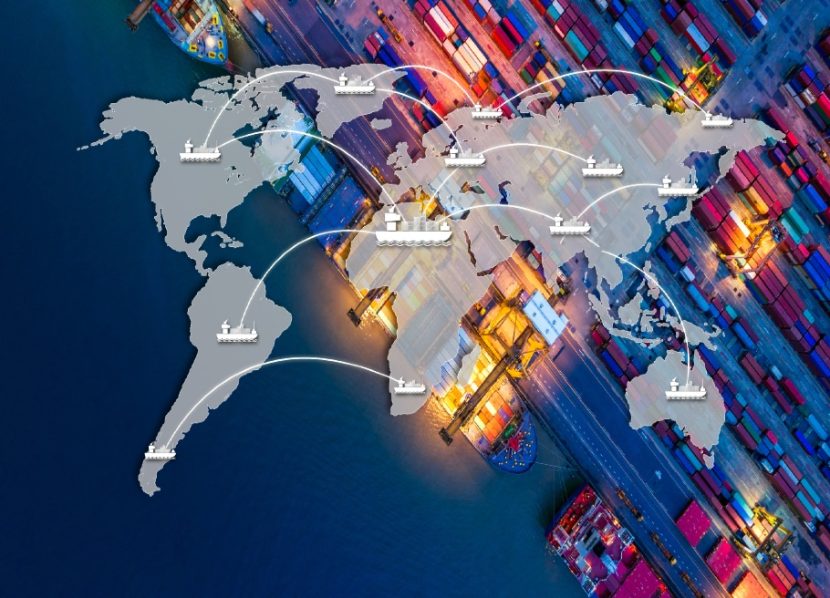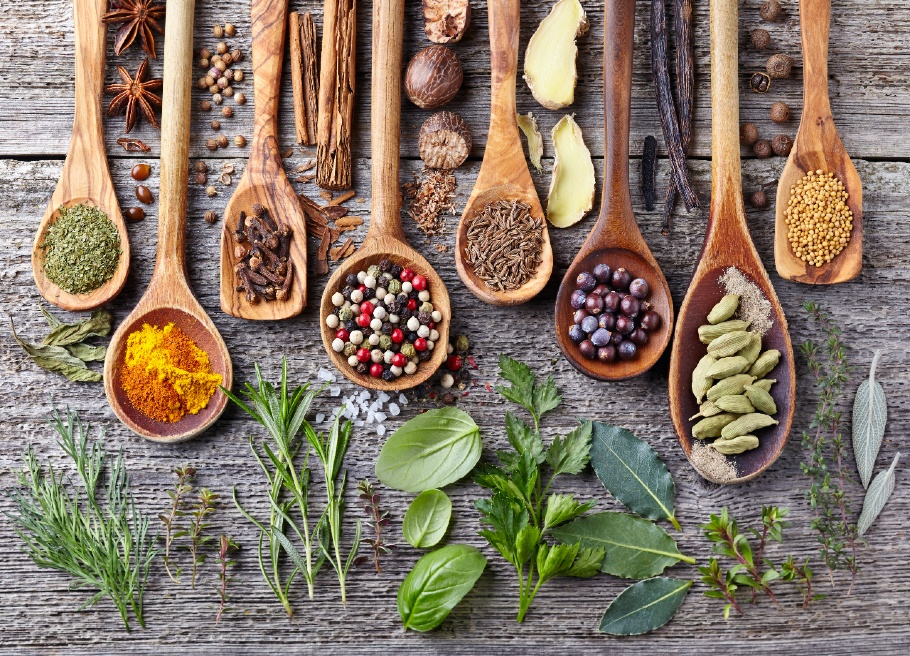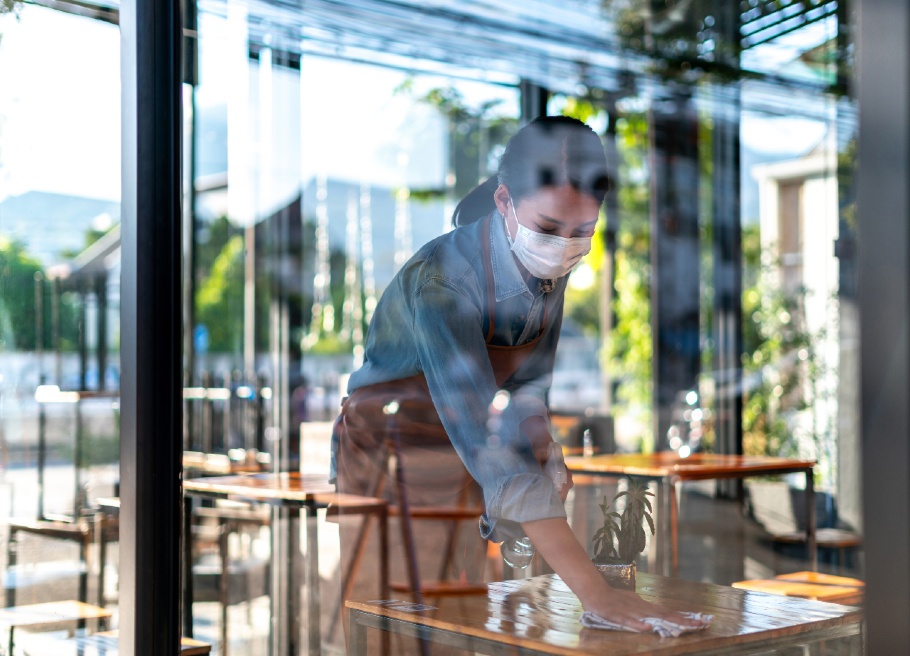AI Data Can Help Food Suppliers Reduce Risks
By Alina Petri
With the majority of countries across the globe (209 countries) affected by COVID-19, quality assurance and food safety professionals are working hard to ensure the continuity of their supply chain.
Today’s most important food producing and exporting countries that have been affected by COVID-19 — with the increase of cases in these countries being exponential. So far, (as of 05/05/2020) the most affected countries by COVID-19 are Italy, Spain, the UK and the US. Based on the total cases and daily increase of cases, the most affected countries that play a key role in global food production are United States, Italy, Spain, United Kingdom, Germany, Russia and France (see table below).
On the one hand, there’s a high demand amongst consumers for both longer lasting food products — such as macaroni, flour and rice, and for fruits and vegetables with high content in vitamin C — such as oranges and lemons. On the other hand, there are restrictions limiting production and causing delays in the transportation of food products. Food production is highly affected as many plants are working in a safe mode and there is a lack of workers harvesting fruits and vegetables in the primary sector. Additionally, the transportation of food products is facing several problems including delays, limitation in space on airplanes and increased prices. These issues are creating food safety challenges across the industry.
Concerns about the quality and safety of the products: Buyers in food manufacturing and retail companies may have concerns about the quality of products imported from countries highly affected by COVID-19. To address concerns, they may ask suppliers within these countries to provide better justification of the production process as well as requesting additional certificates. Providing such documentation is challenging for companies that produce products in these countries — due to restrictions applied at a national level in order to control the outbreak.
Suppliers verification: today the most important tool for supplier verification is not available as on-site audits are not allowed due to travel restrictions. National authorities such as the FDA are already launching new guidelines on alternatives for supplier verification.
Availability of food products: Production at the farming, packaging and processing level is expected to dip which may impact the availability of food products in countries highly affected by COVID-19.
With Italy being a major exporter of tomatoes and apples, restrictions in the supply chain may experience delays in the transportation. In addition to transportation issues, there are issues of supply and demand.
With Spain as a top producer and exporter of fruits and vegetables in Europe — and one of the most highly affected countries of Covid-19, tighter restrictions to control the spread have resulted in production and transportation delays.
Germany and France have experienced a sharp increase of COVID-19 cases, affecting the production of wheat, barley, vegetables and sugar. As a result, the global supply chain is expected to face problems in the availability of such products for some time.
Disruptions in the food supply are also affecting major ports of the world, barge services have been delayed at a number of ports according to data collected and analysed by Marine Traffic. Furthermore, the major ports across the globe have now adopted a 10-day quarantine period for vessels arriving from, or transiting through, China. Such delays in transportation may result in long time storage that could affect the quality and safety of products — for example the development of toxins in cereals and nuts.
Through the use of technology companies can now begin to assess their supply chains to ensure ingredients are not only available but safe in light of the delays due to Covid- 19.
Prior to the pandemic, Agroknow developed technology that uses data to help manage and assess food suppliers. Foodakai was developed to help companies predict risk in their food supply chain. Now more than ever the use of artificial intelligence can be beneficial to companies who are not only sourcing ingredients from multiple countries but need to measure their food safety risks. “It’s important for companies to understand the upside potential of AI in risk management. It can bring huge productivity benefits, saving time, money and potential recalls. Foodakai would have helped my team mitigate and prevent crisis in a more productive manner states Neil Marshall, former Director of Quality and Food Safety for Coca Cola.
The new landscape is not temporary. The supply chain is set to be affected for several months, even years, resulting in a new reality for the way food safety professionals perform risk estimation. This reality calls for remote supplier verification and risk estimation, virtual audits, lab testing and extensive data available to support decision making at all levels.
Knowing the risk profile of countries from which a food company is sourcing raw materials and ingredients, may help make early critical decisions that ensure the continuity of the food supply chain.
About the Author:
Alina Petri is the head of marketing for Agroknow. Agroknow is a data analytics company which uses AI to prevent food recalls.

-
 FeaturedRisk management
The Cost of a Breach: What a Cyberattack Could Mean for Food Safety Recalls
FeaturedRisk management
The Cost of a Breach: What a Cyberattack Could Mean for Food Safety Recalls
-
 FeaturedRisk management
Securing the Food Chain: How ISO/IEC 27001 Strengthens Cybersecurity
FeaturedRisk management
Securing the Food Chain: How ISO/IEC 27001 Strengthens Cybersecurity
-
 FeaturedRisk management
Revolutionizing Food Safety Training: Breaking Out of the “Check-the-Box” Mentality
FeaturedRisk management
Revolutionizing Food Safety Training: Breaking Out of the “Check-the-Box” Mentality
-
 GFSI Standards
GFSI 2025: Building Trust, Tech-Forward Solutions, and Global Unity in Food Safety
GFSI Standards
GFSI 2025: Building Trust, Tech-Forward Solutions, and Global Unity in Food Safety
-
 FeaturedFood Safety
Integrated Pest Management: Strategies to Protect Your Brand’s Reputation
FeaturedFood Safety
Integrated Pest Management: Strategies to Protect Your Brand’s Reputation
-
 FeaturedFood Safety Culture & Training
No Open Door Policy: Challenges That Impact Pest Control in Food Processing Plants
FeaturedFood Safety Culture & Training
No Open Door Policy: Challenges That Impact Pest Control in Food Processing Plants




